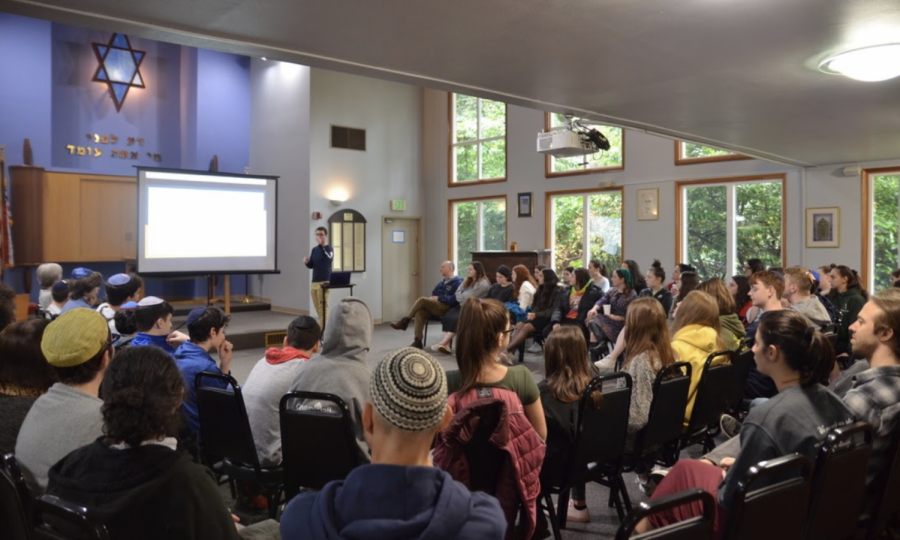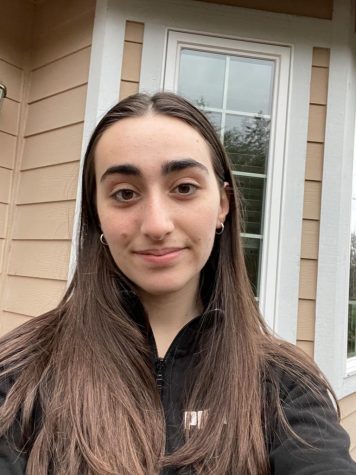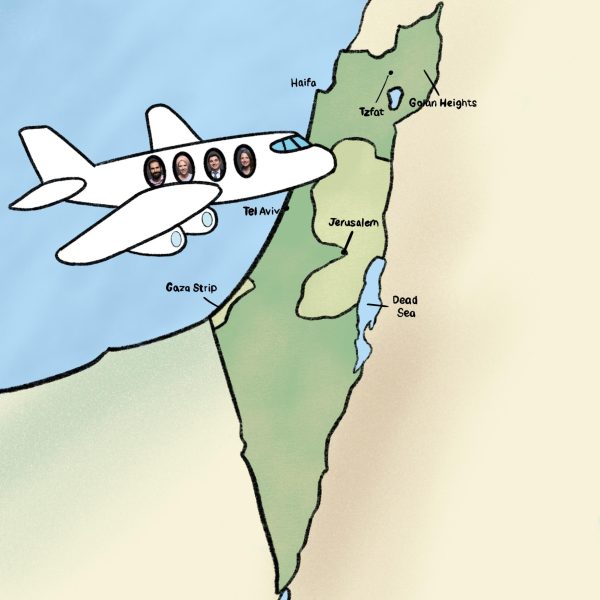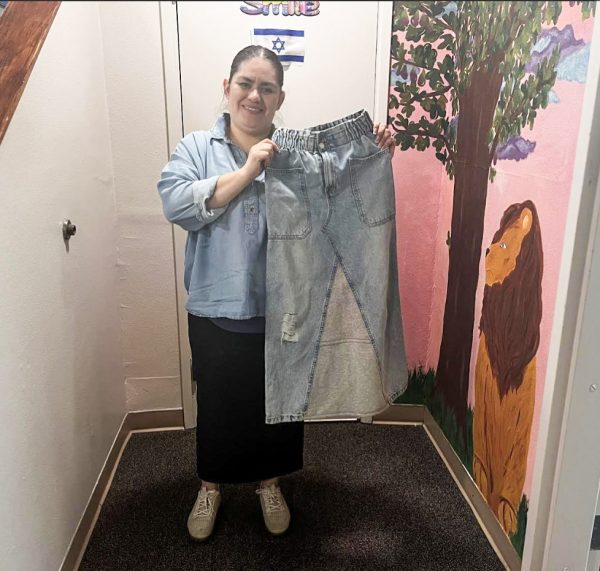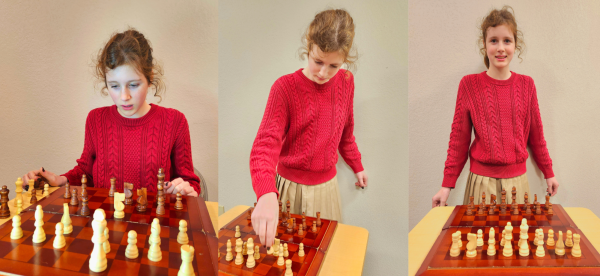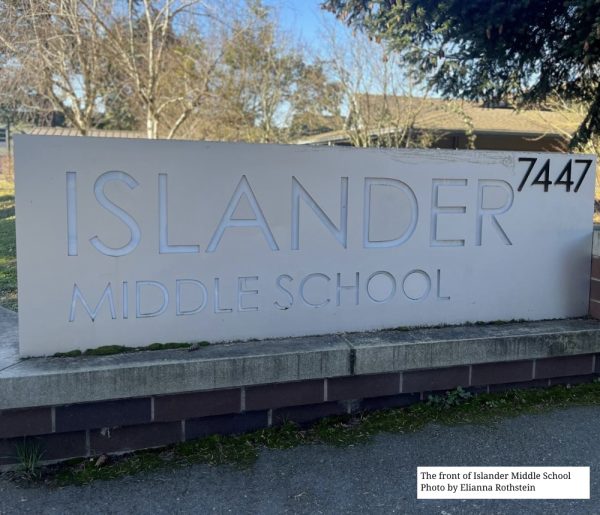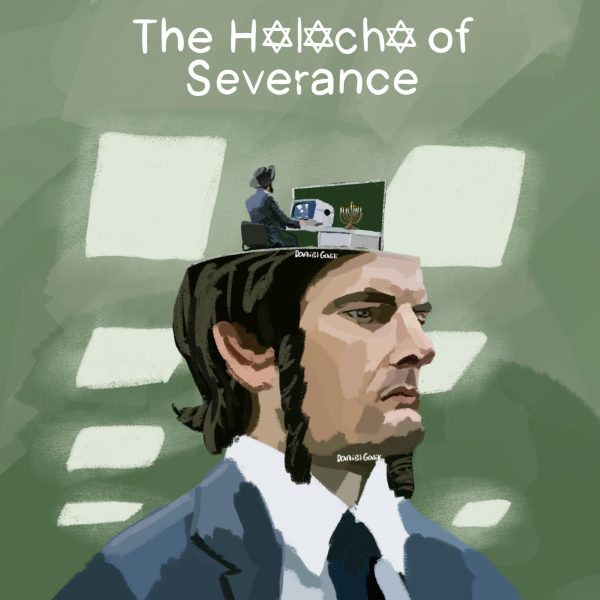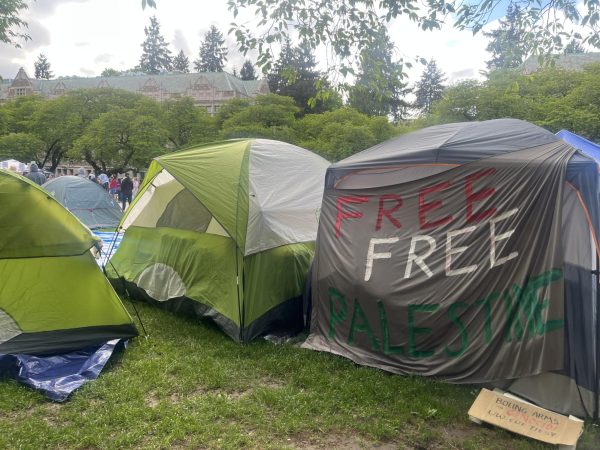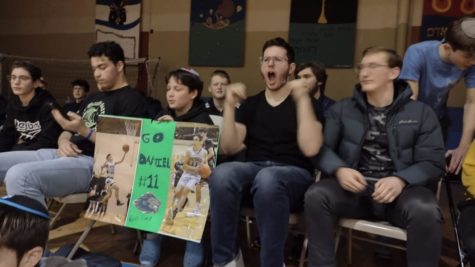Town Hall encourages students to discuss tough topics
At town hall, students dive into controversial topics that are relevant or important to the school.
Agenda Committee Chair Avi Kintzer leads a Town Hall during the 2019-2020 school year.
It’s not often nowadays that you can share your political opinions with others without running into conflict. However, at NYHS town halls, students can, in fact, share opinions freely and respectfully. “An important part of a Jewish education is to be able to think critically and see different perspectives,” said Head of School Jason Feld.
At a town hall, students and staff discuss the pros and cons of a scenario with opposing sides. NYHS is the only Jewish school in the United States, besides Shalhevet High School in Los Angeles, that holds town halls. Feld worked at Shalhevet prior to coming to NYHS, where he was trained by Shalhevet founder Dr. Jerry Friedman. Friedman was trained in Just Community education, a moral educational approach created by Dr. Lawrence Kohlberg, to encourage a sense of democracy in schools.
On November 2, the day before the presidential election, NYHS held a town hall about issues being raised in the presidential debates. The school discussed hypothetical climate change and social justice scenarios. In the first, participants had to determine whether a plastic bottle factory that employs many locals should shut down because of its environmental impact. In the second, the discussion revolved around whether someone should support the Capitol Hill Autonomous Zone from summer of 2020 if emergency medical professionals could not reach people in distress. After discussing these scenarios, the student body held a mock Presidential election.
“It was impressive, the timely relevance of the issues that were raised,” said Feld. He also noted that the students were not just engrossed in the discussions for a grade or other credit, but rather, they genuinely wanted to discuss the issues.
The town halls at NYHS present scenarios that fall into three major categories: right vs. right, building moral character, and affecting change. At a town hall a few years ago, NYHS held a discussion about making the Friday lunch period longer. In the end, students voted on the solutions and changes they discussed and were even able to implement them into the bell schedule.
Town hall is student driven and run by the student council. When the student council feels there is an issue that the students should be discussing, they plan a town hall around it. Some other town halls that the school has had this year were about whether The Mane Idea should write about scandals regarding the school, and if the school should regulate or control what times the students should do homework. These ideas can also be suggested by members of the student body.
The dilemmas that NYHS students and staff face in town halls, especially the right vs. right scenarios, encourage everyone to think about the factors and outcomes of different situations and decisions. “People can voice their opinions and views, as well as hear the opinions and views of others,” said Student Activities chair Shoshana Behar. “We can all learn from each other.”

